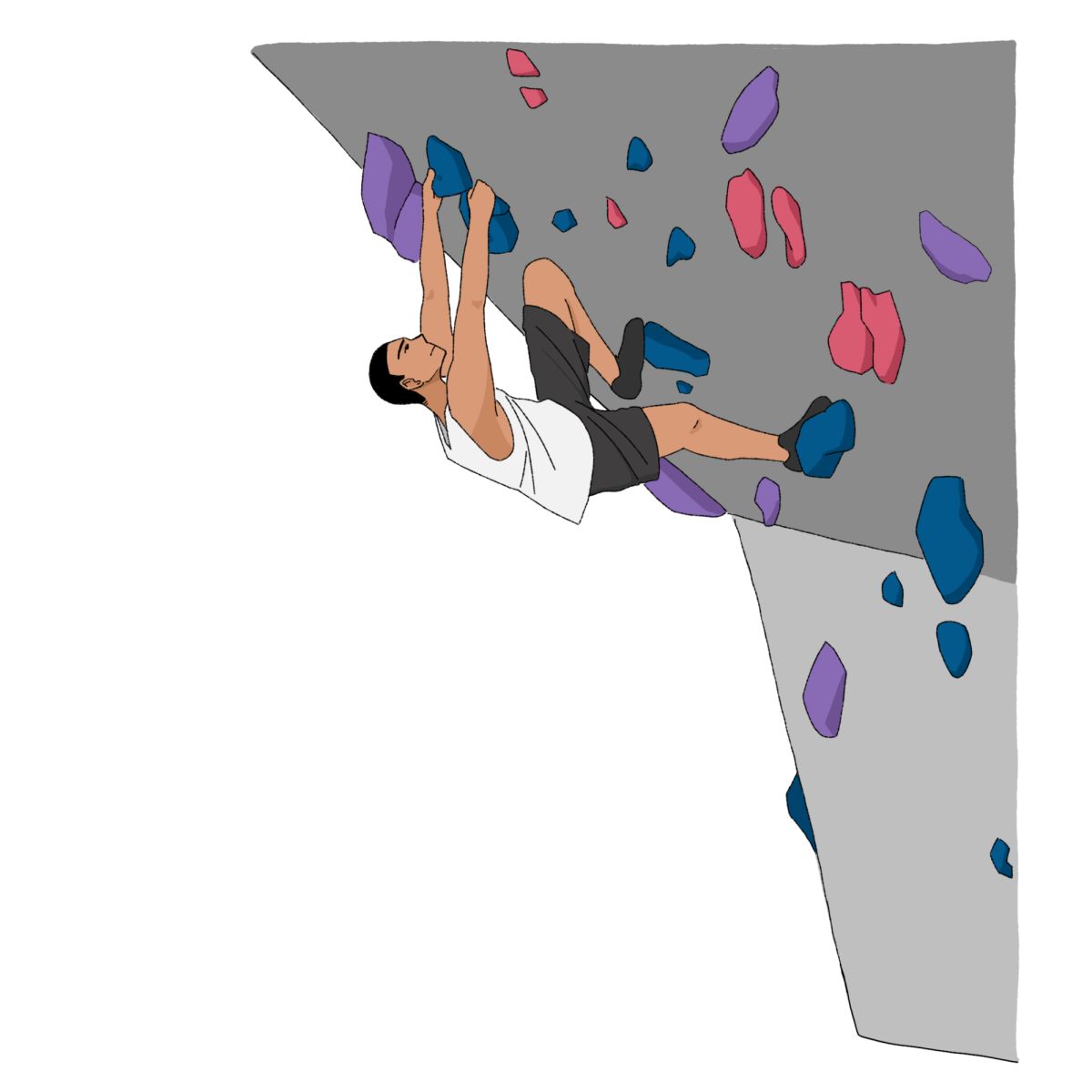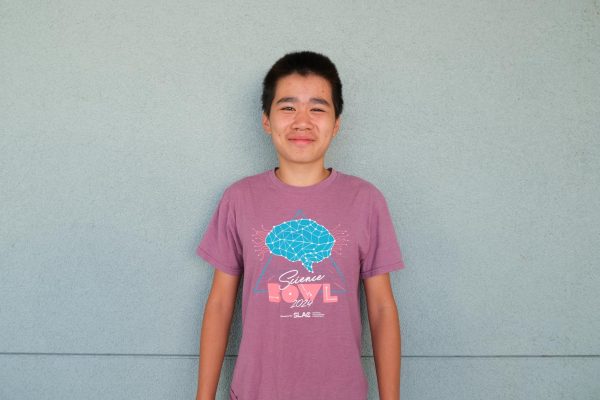Although not as popular as sports like basketball or football, rock climbing has found its niche within the Gunn community. For many students, rock climbing isn’t just a sport to train and compete for — it’s a hobby that fosters camaraderie and personal growth among the demands of school life.
One of these climbers is junior Cameron Ennis, who began his rock climbing journey in middle school after his dad brought him to a climbing gym on the Stanford University campus. Ennis shares his personal journey of improvement using the V scale, where the difficulty of climbs increase from V0 to V14.
“(At first), I didn’t take (rock climbing) that seriously,” he said. “Then when COVID hit, I stopped entirely. About a year ago, I got back into climbing, but this time, a lot more seriously. When I started, I could only climb V1’s and occasionally V2’s. The progression that you get from working your way up the grades was really motivating for me. A year later and I’m climbing V5’s and V6’s.”
According to Ennis, rock climbing is especially appealing to students due to its inclusivity regarding one’s physique and skill level.
“A lot of sports are significantly easier for people who have a specific body type that’s optimal for that sport, like basketball with tall people,” he said. “Climbing, on the other hand, is a lot more accessible since people of any height or weight can climb and have fun. Climbing gyms are made to be for everyone, and the community is super supportive, so you don’t have to feel embarrassed about not being able to climb stuff that really experienced people can.”
Sophomore rock climber Annika Kulawik echoes Ennis’ points about the inclusivity of the rock climbing community, saying that accessibility is one of the many common misconceptions that deter participation in the sport.
“Some people think in order to rock climb you have to be super strong and need a ton of special equipment,” she said. “You don’t. Gyms make climbing way easier and more accessible now, and you are unlikely to hurt yourself falling.
According to Ennis, many people, especially those afraid of heights, believe that rock climbing is dangerous. In reality, many safety precautions are taken before even one begins climbing.
Sophomore Joshua Rene-Corail believes that the importance of rock climbing comes from the necessity of perseverance and character building.
“Rock climbing is for everyone, because it can be both an individual and team sport, and you don’t need a lot of experience to start out,” he said. “It’s all about setting goals and challenging yourself.”
Rene-Corail has been rock climbing for five years, during this time, he has achieved a healthy balance and between his schoolwork and sport.
“(Rock climbing) definitely removes a lot of pressure and stress that I have with different classes or assignments,” he said. “It’s an easy way to escape work sometimes.”
To Kulawik, although rock climbing takes up a lot of time, she believes that its benefits greatly outweigh its costs.
“I’ve met friends at the gym and it can be fun to work on climbs together,” she said. “It does take a lot of time. Sometimes I spend three hours from when I leave my house to when I get back, which gives me less time to do homework, but it’s worth it.”
Rock climbing at Gunn embodies the spirit of community and resilience, welcoming all students to challenge themselves and find solace in a sport that transcends mere physical activity. As rock climbing continues to establish itself in the Gunn community, it fosters student connections and inspires individuals to pursue their own unique paths.
According to Ennis, Gunn’s Rock Climbing Club readily invites those who are curious about or interested in climbing.
“If you’re thinking about trying out rock climbing, I’d recommend getting in contact with climbers at Gunn, such as people who go to Climbing Club,” he said. “We do regular meetups at the nearby climbing gyms, and we’re totally down to introduce you to climbing and give advice.”













